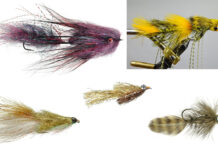SINGAPORE — Thousands of wriggling larvae won’t deter this self-declared “urban farmer.”
Chua Kai-Ning is one of the founders of Singapore’s first urban insect farm, Insectta — a high-tech farm that rears the black soldier fly to help turn food waste into biomaterials for industrial use.
“The black soldier fly is a way to contribute to what we call the circular economy, where we produce things without anything going to waste,” said the 26-year-old, who has a background in English linguistics.
Some in Singapore are turning to urban farming in this land-scarce city, as they look for high-tech ways to turn waste into useful resources.
Chua is one of them.
We are not only reimagining what we farm, but what we get out of the farming process.
Chua Kai-Ning
Co-founder, Insectta
“Their superpower is their ability to consume food waste,” she said of the black soldier fly, regularly scooping up a handful of writhing insects with her bare hands throughout the farm visit.
“A kilo of larvae can go through four kilograms of waste in just 24 hours,” she said, explaining that pre-consumer food waste — primarily soybean leftovers and spent grain from the beer-brewing industry — is fed to the larvae.
But the work doesn’t stop there.
Insectta’s co-founder and chief technology officer Phua Jun Wei demonstrating water-soluble melanin derived from their black soldier fly larvae.
From the insect farm, the trays of larvae are transported to a laboratory on the other side of the island state. There, biomaterials are extracted from the larvae and used to produce valuable substances for electronics, pharmaceuticals and cosmetics, such as chitosan and melanin.
The future of urban agriculture, Chua maintained, is in deep technology. Deep tech companies are often start ups founded on scientific and engineering breakthroughs, aimed at harnessing technology to address environmental or societal challenges.
“We are not only reimagining what we farm, but what we get out of the farming process.”
Pioneers such as Insectta are not the only ones coming up with high-tech ways of farming to cater to a world with evolving needs. Farmers in typically traditional environments are also tapping into technology to bring added value to their fields of specialty.
Eco-Ark is one such example. The closed-containment floating fish farm located in the eastern side of Singapore uses seawater that has been optimally treated to farm fish.
The farm — an area slightly smaller than two basketball courts — also uses green energy tapped from its solar roof to power about 20% of its farming activities, the company said.
The Eco-Ark is a closed-containment floating fish farm located off a Singapore coast, yielding more than 160 tonnes of fish a year.
“We produce our own oxygen, we produce our own ozone,” said Leow Ban Tat, CEO of Aquaculture Centre of Excellence, which built Eco-Ark.
Open-net fish farms are vulnerable to environmental threats such as plankton blooms, oil spills and warmer waters due to climate change. Unlike these traditional farms, fish on the Eco-Ark are contained in seawater that is filtered and treated to kill pathogens.
“As fish grow, they produce a lot of ammonia and nitrates,” he explained, adding that water discharged back to the sea is treated and free of waste.
In addition to a water filtration system that improves the mortality of fish reared, the high-tech floating farm is the first in the country to have post-harvest facilities, said Leow.
After cleaning and preparing ready-made fish for consumption, the fish bones and fish heads left behind are turned into pellets that can be used as plant fertilizer, ensuring no unnecessary waste.
Singapore sets its sights on high-tech farming
Traditionally, urban farms are not known to be energy efficient. Critics say that growing food with the help of high-tech systems to boost artificial farming environments, such as in climate control, raises energy costs.
With the challenges of climate change and a growing population, research and development has become a critical to overcoming threats to sustainability with the help of technology.
In its latest budget, Singapore set aside 60 million Singapore dollars (about $45.2 million) to encourage farmers to utilize technology. The Agri-Food Cluster Transformation Fund was established in February to help farmers better apply technology to local food production.
Separately, more than 23 million Singapore dollars from the Sustainable Urban Food Production grant have been utilized to fund a dozen research and development projects.
The goal of sustainability has drawn people like aquaculturist Nick Goh to fish farms like Eco-Ark.
“This is actually what I wanted to do. It is not sustainable if we keep on doing fish-netting outside, fishing, fish trawling,” he told CNBC. “So if we have aquaculture in the field, we can actually first sustain the ocean, and second, sustain ourselves in terms of food security wise.”
Black soldier fly larvae eating through a tray of pre-consumer food waste.
Insectta’s Chua admits it’s not been easy.
“Pioneering anything, especially in a deep tech industry, is definitely scary,” Chua said. “But it’s also empowering because you know that you’re the first mover for change.”
“If we don’t go out there and look for new solutions to current problems such as the food waste crisis, dwindling natural resources, we’re never going to make any headway.”
Credit: Source link































